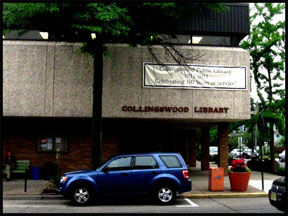Like many LGBT Americans, I was profoundly moved by President Obama’s recognition of gays and lesbians in his inaugural speech. Even my straight-talking retired postal worker partner who usually has something to say about everything (when it comes to gay rights, her usual comment is “it’s about time”) sat quietly in front of the television taking it all in. It is about time and it is still amazing.
There were quite a few historic firsts at the inaugural ceremony, but the highlight for me was the inaugural poem by Richard Blanco, the first Hispanic and the first openly gay poet to recite a poem at a presidential inauguration. For me a poem is a slowing down of time, an opening, and a good poem always presents a teaching moment, that is once in a while life-altering, and leaves you experiencing the world differently.
There were two such moments within Blanco’s poem, “One Today,” and with the help of thecamera panning the immediate crowd, we can see the immediacy of those moments on the listeners. The first was when, Blanco recited the words “…. on our way to clean tables, read ledgers, or save lives– to teach geometry, or ring-up groceries as my mother did for twenty years, so I could write this poem.”
The camera panned to Michelle Obama who looked up from her poetic reverie and opened her eyes when Blanco mentioned his mother. The look in her eyes was solemn, one that appeared to be based in compassion and identification.
The second teaching moment occurred closer to the end of the poem when Blanco was reading the words, “Hear: the doors we open for each other all day, saying: hello, shalom, buon giorno, howdy, namaste, or buenos días in the language my mother taught me…” And then the camera panned to Virginia Rep. Eric Cantor. Shortly after the phrase “buenos dias,” he twitched. In all fairness, Cantor may have been twitching all day — it was cold and he couldn’t simply sit in his warm home and turn off the television like so many other Republicans undoubtedly did. And it could have been worse. If Blanco had read a poem with explicitly gay content, Rep. Cantor might have done more than twitch.
I had been wondering, how Cantor and Speaker of the House John Boehner (R-Ohio) could stand there and listen to Blanco’s poem and not be moved by it. I was profoundly moved. I was the first in my family to go to college and I was close to my mother. When I began to write my book Tea Leaves, a memoir of mothers and daughters (Bella Books 2012), I was primarily a poet. And even though I haven’t written poetry in years, I still have poetic sensibilities.
I wrote Tea Leaves to make some sense of losing my mother to cancer and being, along with my father, one of her primary caretakers. I also explore my working class background in this book, in particular writing about grandmother’s life who was a spinner in a textile mill in Philadelphia.
It is because of my class consciousness that Blanco’s poem resonated so strongly with me. Many immigrants have taken jobs that others would not do and whether it was picking fruit, packing meat, bagging groceries, or taking care of other people’s children they provide the services that this country could not do without. Then if they are “illegal,” they are deported or at least must always live in fear of deportation. Don’t we owe it to them to provide them with citizenship?
This week, both parties plan to introduce overhauled immigration legislation and they have the opportunity to do the right thing. Cantor, predictably, is solidly against immigration reform. His record speaks for itself. In 2007, he voted to declare English as the official language of the United States. In 2006, he voted yes on building a fence along the Mexican border.
More recently, Cantor was consistent in his conservative views in voting against enforcing anti-gay hate crimes in 2009, and in 2012 stated that taxpayer money should never be used to “kill innocent life” and in 2011 he voted in favor of banning federal health coverage that includes abortion.
There has been much talk about how Republicans lost the Hispanic and female vote in the Presidential election — and how they have to appeal to these groups of voters if they want to have a future as a viable party. While I have found these discussions interesting, I am not personally invested in the Republicans improving their lot.
But I do think that Republicans should do the right thing on immigration reform.
And if they do, then maybe some credit can be given Richard Blanco’s poetic moment.
In short, we are more alike than different. And if you doubt that, remember Blanco’s one word sentence,
Breathe.






























![Tea%20Leaves_lg[1] Tea Leaves, a memoir of mothers and daughters from Bella Books cover image has photo of Jane Mason, age 10, taken in 1929.](https://tealeavesamemoir.wordpress.com/wp-content/uploads/2012/05/tea20leaves_lg1.jpg?w=195&h=300)
